#2021 movies
Text
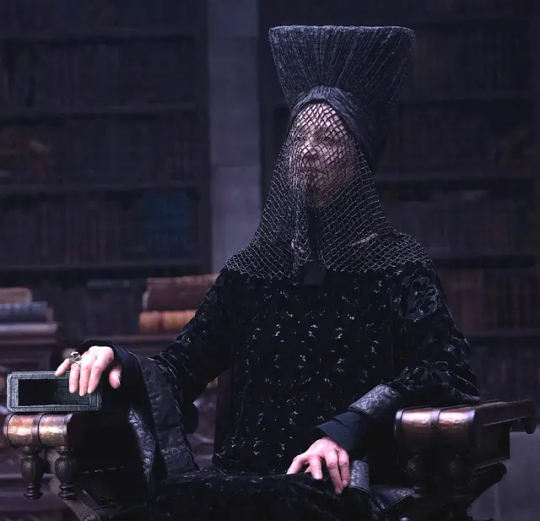
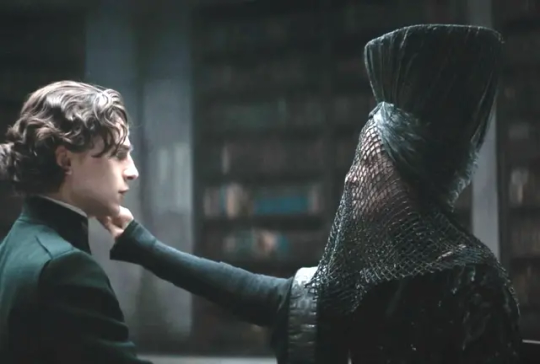
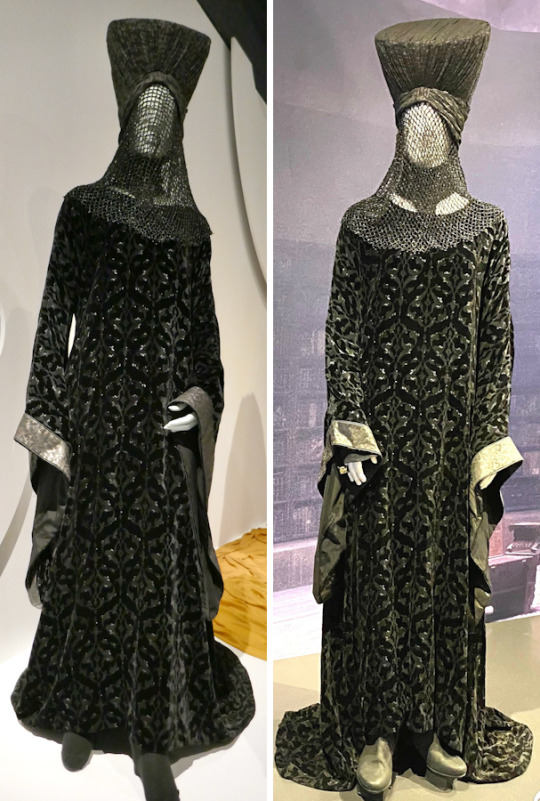
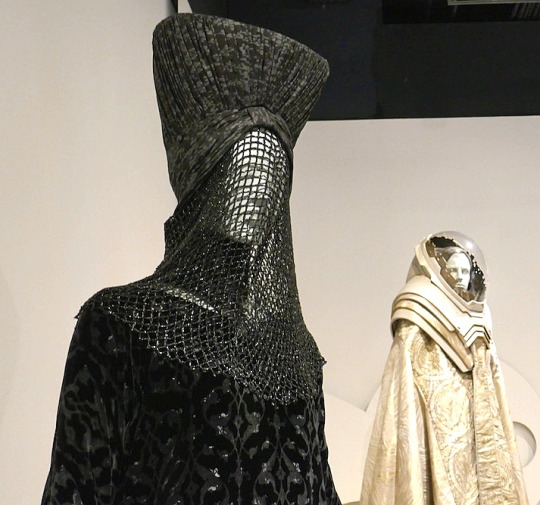
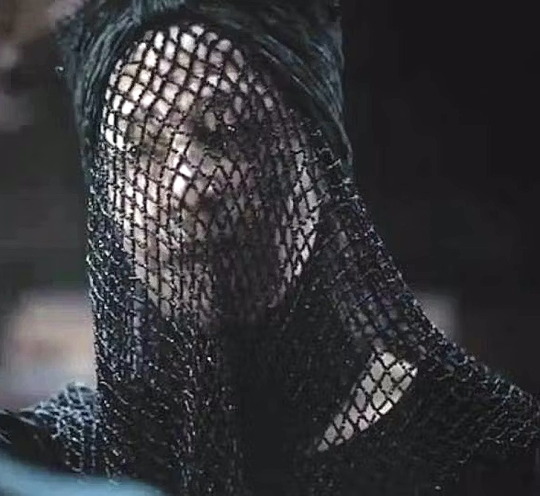

One Dress a Day Challenge
October: Black Redux
Dune / Charlotte Rampling as Reverend Mother Gaius Helen Mohiam
A great example of costume as worldbuilding, the Reverend Mother's robes and headdress evoke tradition, mystery, and power. The robe is made of some heavy, rich material with a subtle pattern that is hard to see in the dim lighting of the scene. The tall headdress suggests high rank and also confers an air of authority, while the coarse net veil hides her features just enough to make her inscrutable. All in all, a very effective costume that contributes to making this scene very memorable.
To see all that gravitas turned into something completely silly, check out this video:
youtube
#dune 2021#black dresses#charlotte rampling#one dress a day challenge#one dress a week challenge#movie costumes#scifi costumes#2021 movies#2021 films#reverend mother gaius helen mohiam#gaius helen mohiam#bene gesserit#black dress#black redux#costume as worldbuilding#Youtube
76 notes
·
View notes
Text


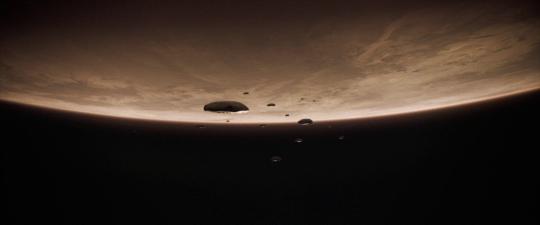

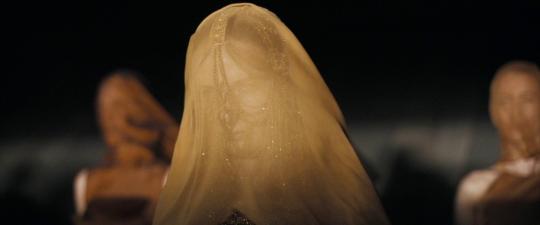
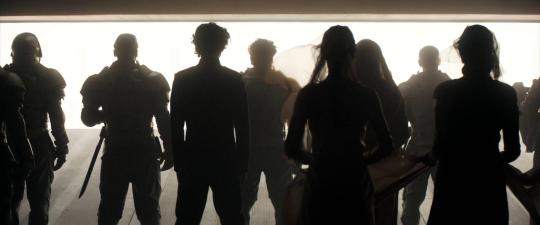
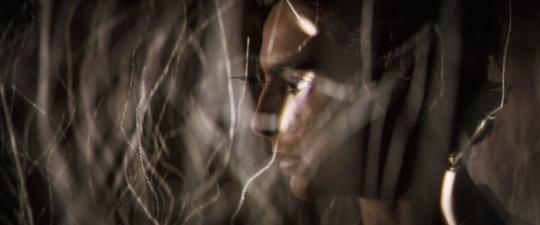


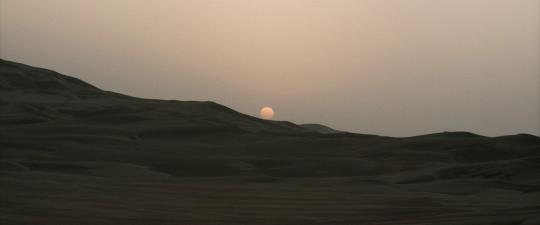
Dune (2021), dir. Denis Villeneuve.
#movies#denis villeneuve#dune#dune 2021#films#timothee chamalet#zendaya#oscar isaac#rebecca ferguson#jason mamoa#cineshots#cinematography#film stills#2021 movies#cloud_tinn
86 notes
·
View notes
Text
Dune (2021)
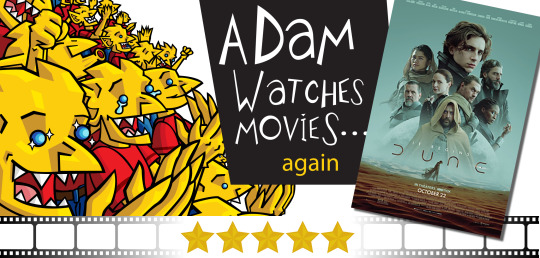
Even upon a rewatch, 2021’s Dune: Part One is spectacular. The memorable, foreboding score by Hans Zimmer, the costumes that bring this world to life, the scale of the action and the unique sets, ship & weapon designs all come together to complement a story of mythical scale. After seeing this film, two thoughts start competing for your brain’s attention. 1) If Frank Herbert’s Dune was adapted this successfully, then no work is unfilmable and 2) the sequel can’t come soon enough.
In 10191, the universe is ruled by an Emperor who assigns the exploitation of planets to powerful ruling houses. Interstellar travel is possible through “spice” a substance found exclusively on the harsh desert planet of Arrakis. For 80 years, Baron Vladimir Harkonnen (Stellan Skarsgård) and his house have overseen the harvest of spice. Now, Duke Leto I (Oscar Isaac) of House Atreides is the new steward of Arrakis but only for as long as the flow of spice continues. This shift puts House Atreides, particularly the Duke’s son, Paul (Timothy Chalamet), in danger.
At 155 minutes, you’d think this movie would feel long, but it doesn’t. One of the reasons is that there’s a lot within to keep your mind busy. What’s a Freman? What’s a Kwisatz Haderach? What’s “the voice”? If director Denis Villeneuve tried to cram this story into 90, or even 120 minutes, it would move so quickly that all these questions would leave you in the dusty sands of Arrakis (that’s the planet, right?). By taking its time while moving at a good pace the film allows you - in time - to answer all of your questions. Since you understand what’s happening, you’re engaged. It helps that if you can’t remember what each name means, the visuals pick up the ball. The grotesque, scheming Baron Vladimir Harkonnen is clearly a villain. It's particularly obvious once you see his nephew, the psychotic and childish Glossu Rabban (Dave Bautista). You know you can’t trust the Bene Gesserit because their leader, Reverend Mother Mohiam (Charlotte Rampling) makes Paul take a painful, life-threatening test to prove he isn’t a threat himself. These are only a few of the many examples I could choose and they show how the story is both complex and easily digestible.
Even without the gripping story filled with backstabbings, political intrigue, violence, quests for revenge and harrowing struggles for survival, Dune would still have you tightly in its grip. Throughout, Paul’s psychic abilities give him visions. They foretell the future… sort of. They give hints of what’s coming but hints are not the same as clear answers. These all tie to this planet he’s on; a world that doesn’t end where the screen does. The details in the dialogue, sets and costumes make you wish the Harkonnens would just chill, and save their grudge for later. This way, you’d have time to see House Atreides befriend the Fremen and familiarize themselves with their customs.
There’s so much happening in this film that some of it you won’t “get” until later. For example, the early assassination attempt on Paul’s life. The would-be killer? A Harkonnen cutthroat, hidden in a bedroom wall. What kind of wealth, power and/or terrifying influence could persuade someone to take on that sort of assignment, knowing they would have to wait in darkness for weeks, slowly starving to death, just to kill a boy?
The passion within Dune is as clear as its ambition. You’re only getting half of a movie with it, but this choice feels like a necessity, rather than a Breaking Dawn-type of cash-grab or an attempt to start another franchise for a money-hungry studio. It certainly doesn’t feel presumptuous. Everything we see feels important; like it’s building up to not just one, but many bigger character arcs in a world that contains hundreds of stories. You know the threads that are left hanging will be tied up - that’s the kind of confidence all of the artists at work instill in you. Dune/Dune: Part One is a film that’s going to be remembered. (March 1, 2024)
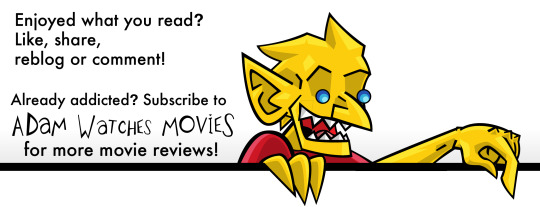
#Dune#movies#films#movie reviews#film reviews#Dune: Part 1#Denis Villeneuve#Jon Spaihts#Eric Roth#Timothee Chalamet#Rbecca Ferguson#Oscar Isaac#Josh Brolin#Stellan Skarsgard#Dave Bautista#stephen mckinley henderson#Zendaya#Chang Chen#Sharon Duncan-Brewster#Charlotte Rampling#Jason Momoa#Javier Bardem#2021 movies#2021 films
8 notes
·
View notes
Text

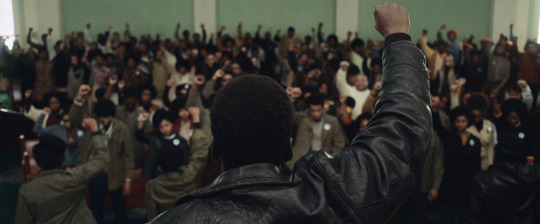
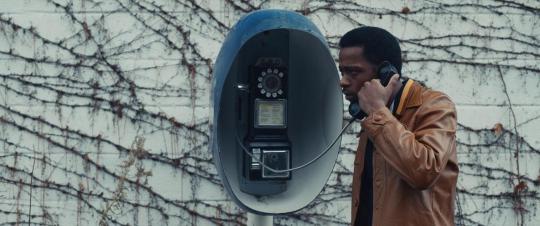

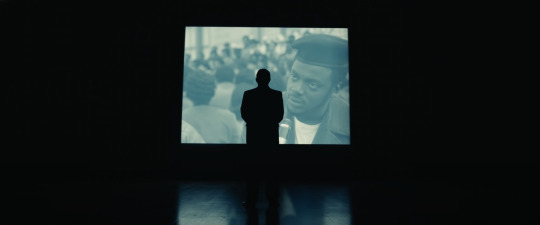
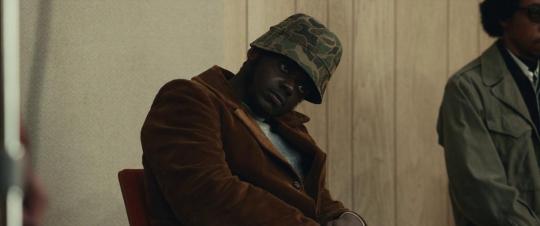
𖥔 ࣪ ˖ 49. judas and the black messiah (2021) dir. shaka king
#2023#judas and the black messiah#2021 movies#daniel kaluuya#lakeith stanfield#jesse plemons#cinematography#film stills#movies#cinema#cineshots#screencaps
22 notes
·
View notes
Text
Review Double Feature: Dune (2021) and Dune: Part Two (2024)
Dune (2021) and Dune: Part Two (2024)
Rated PG-13 for sequences of strong violence, some disturbing images and suggestive material (Part One)
Rated PG-13 for sequences of strong violence, some suggestive material and brief strong language (Part Two)
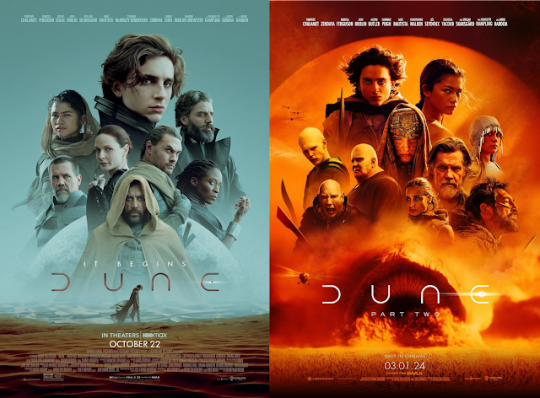
<Originally posted at https://kevinsreviewcatalogue.blogspot.com/2024/03/review-double-feature-dune-2021-and.html>
Score: 4 out of 5
Yep, we're doing the Kill Bill thing again and grading two movies together as one singular whole. And that's because, much like Kill Bill, this is no ordinary pair of movies. Rather, they're a two-part adaptation of the absolute monster of a novel that is Frank Herbert's Dune. A landmark of science fiction, it is no pulpy airport paperback, clocking in at 896 pages and covering everything from the ecology of a desert world to the use of religion as a tool of control to the fall of empires to the nature of power to a deconstruction of "chosen one" mythologies and everything in between. It's a novel that typically comes up on shortlists of the greatest science fiction novels of all time, one that's been compared to J. R. R. Tolkien's The Lord of the Rings trilogy in fantasy in the canon of modern speculative fiction. (Ironically, Tolkien disliked Dune, though he didn't really say why in the interest of remaining diplomatic.)
It's not a book you take lightly, is what I'm saying.
What's more, the very things that have made it so tempting to adapt to the screen are the same things that have long given it a reputation as "unfilmable". Attempts to make a movie out of it have bedeviled nearly every filmmaker who's tried, including some of the greatest of the modern age. David Lean was offered the film, but turned it down. Alejandro Jodorowsky tried to adapt it in the '70s and failed. David Lynch actually managed to get his movie made back in 1984, producing a film that's widely remembered, not least of all by Lynch himself, as a psychedelic mess. The Sci Fi Channel produced a miniseries in 2000 that faithfully adapted the text of the book and, despite a very large budget for a TV show at the time and a huge marketing push, proved to be just as divisive among sci-fi fans. Its influence wound up coming less through its own adaptations and more from other authors and filmmakers inspired by it to make their own, less categorically weird stories, including a number of films that emerged directly from the ashes of Jodorowsky's abortive production. (You might've heard of a few of them, like Alien, The Fifth Element, Warhammer 40,000, and even Star Wars.)
So when Canadian filmmaker Denis Villeneuve decided that he wanted to adapt Dune, many critics, film journalists, and fans predicted it would be his Waterloo. Sure, he's a modern wunderkind who's never made a bad movie, up there with Christopher Nolan as a darling of today's film buffs (and, in my opinion, one who has a better track record). Sure, he'd already done the impossible by making a sequel to Blade Runner, one of the greatest science fiction films of all time, that was just as good as the original. But if Jodorowsky and Lynch couldn't do it, then how in the world was Villeneuve, somebody whose background was chiefly in gritty, spectacle-light thrillers like Prisoners and Sicario, going to pull off adapting a novel as famously trippy as Dune?
What Villeneuve did was largely stick to the text of Herbert's novel as the miniseries did, cut a lot of the backstory and many of the psychedelic elements, and instead focus heavily on both the ecological themes of the story and the events of its present, especially its political subtext and its commentary on "chosen one" narratives. What emerges is a film duology that feels like a dark retelling of Star Wars (or at least A New Hope) in which the story of Luke Skywalker, instead of a tale of a straightforward hero saving the day, is instead a tale of the rise of the Antichrist -- and, incidentally, a far better take on the idea of "what if the chosen one turned out to be the bad guy?" than the Star Wars prequel trilogy. It's not a perfect adaptation, and honestly, I'm still not sure if a "perfect" adaptation of a novel like Dune is even possible outside of a miniseries. (Jodorowsky's version would've been ten to fourteen hours long.) But whether I was watching it at home on a big-screen TV (as I did with Part One to get caught up) or in a packed movie theater (as I did with Part Two), I got a gorgeous, compelling, slow-burn sci-fi epic filled with a rich cast of complicated characters that sets up even bigger things to come but still ends in just the right way, without a doubt the best adaptation of Herbert's novel so far and one that I expect to endure in the canon of science fiction classics just like the novel.
Our story starts over eight thousand years into the future, with humanity ruled by the Imperium, an empire in classic medieval fashion where power is divided between the Emperor and the various Great Houses of the nobility. Arrakis, a harsh desert planet that is strategically vital for its supply of spice, a drug that is necessary for faster-than-light travel to be possible, has just been transferred by the Emperor from the control of House Harkonnen, which ruled it for decades, to House Atreides. The Atreides patriarch Duke Leto knows that this is a power play by the Emperor to thwart the growing power of his family, as control of Arrakis paints a giant target on their backs for other families to go after, not least of all a bitter House Harkonnen, but he also knows that he can't openly defy the Emperor's wishes and turn down this white elephant of a gift. Sure enough, exactly what he feared comes to pass. However, when House Harkonnen took back the planet, they didn't count on one man: Paul Atreides, Leto's teenage son, who survives the initial attack with his mother Lady Jessica and runs off into the desert to live with the Fremen, the tribal native people of Arrakis who have always resented the power of outsiders over their world, and plots revenge. Unbeknownst to Paul, however, a secretive religious order called the Bene Gesserit, one that includes his mother, has plans for him, and has set in motion events that will lead to his rise as a mythical savior of humankind called the Kwisatz Haderach... but unbeknownst to the Bene Gesserit, Paul, who's been having visions of himself causing a galaxy-scale spree of death and destruction, has his own ideas as to what kind of man and leader he's going to be.
The first film opens with Chani giving a vivid description of the beauty of the desert ecosystem of Arrakis, and it's clear that the environmental themes of the story were where a lot of Villeneuve's attention lay. He keeps the exposition indirect in order to fit as much of the book into five-plus hours as he can, instead preferring to show us how the world functions: a mouse-like alien creature wiping the sweat off its ear and drinking it again, the fact that nearly all of Arrakis' human development is either underground or otherwise shielded from the brutal sun, the human population being consequently nocturnal, the status of mountains and large rocks as islands of safety amidst the sea of dunes and its terrifying sandworms, fresh water being a resource as precious as gold. This short of "show, don't tell" exposition extends throughout the story. We don't need to be told that the proliferation of personal protective force fields that only slow-moving objects can get through has made guns obsolete in industrial warfare and led to a revival of melee infantry weapons like swords, pikes, and daggers, nor do we need to be told that, against the Fremen who don't have those fancy shields, guns are still very useful. We can figure that much out just by watching how these devices function and figuring out the implications, and then doing the same with all the other neat stuff about the worldbuilding. In the book, Herbert explained the setting's retrofuturism and lack of computer technology with a lengthy backstory about a war between humans and AI called the Butlerian Jihad in which humanity's victory was followed by a thorough backlash against "thinking machines". None of that makes it into the movies, but it didn't really need to, not when the films do an expert job of crafting a society that thinks it's too good for computers, and not when it's resting on the visual shorthand of countless past space opera flicks like Star Wars. A rare case where the fact that the source material has inspired countless great movies actually works in the favor of its own adaptation, letting it spend less time on the parts of the worldbuilding that we've all seen before and instead focusing on the parts that stand out from the pack.
And the part here that stands out is a big one. Over a decade before George Lucas played a "chosen one" sci-fi story pretty much straight (and over three decades before he made the prequels as a deconstruction of such), Herbert wrote a story that portrayed prophecies, Great Man narratives, and organized religion as tools that could be easily exploited by a tyrant. Paul Atreides may have meant well, hoping to liberate the Fremen from tyranny, but by inserting himself into their struggle (with help from shadowy figures who had their own agenda in paving the way for his reign), he built something terrible, and the psychic visions he has throughout the story make it clear that his accomplishments will end in tragedy. Timothée Chalamet plays Paul initially as a rich kid struggling with the pressure placed on his shoulders, one who takes to Arrakis astoundingly well to the point that, when he's forced to leave his safe and secure life at the palace, he winds up comfortably integrating right into the Fremen's society. Throughout the films, we get hints of darkness within him, especially in Part Two once he starts delivering bombastic speeches to enraptured crowds that at some point start to sound uncomfortably like the speeches that the villains normally give in these sorts of movies. Even more than the psychic visions he has of the death and destruction to come, it was in these moments when I was both captivated by Paul's power and, more importantly, scared of the kind of leader he was growing into: a harsh, unforgiving warlord who's willing to resort to extreme measures to secure the independence of the Fremen. He's an easy guy to root for, but there's always a pit in your stomach as he slowly but surely pushes the boundaries right up to the breaking point. It's here where Chani, her role considerably expanded from the books, emerges as the film's voice of reason, serving as Paul's lover but also somebody who realizes that the Fremen are trading slavery at the hands of a colonial overlord for slavery at the hands of a cult leader, even without knowing the behind-the-scenes machinations that put Paul in his position.
That said, if it wanted to completely stick the landing here, there was one final shoe that needed to drop but didn't. Paul's psychic visions merely show him ominously as a leader with Hitler-esque undertones, as well as him in battle. The book went a lot further when it came to having Paul's visions showing him with far more than just undertones, sketching vivid displays of the misery that he is fated to cause: famine, genocide, the apocalypse on a galactic scale. What the films show us is designed to make us uneasy about Paul, while letting Chalamet's performance do the rest in making him look like a budding villain, but there's a point where "show, don't tell" can be taken too far, and that's when you're talking about prophecies of disasters to come that you can't linger on for too long in the film itself and can only tell us will happen. I was only a bit freaked out by Paul, when I should've been picturing myself in Germany in 1933. I was getting all the cool and badass parts of a great villain, but the things that actually make him a villain are still to come, and that, I think, undercut some of the menace and unease I was supposed to get from Paul. It wasn't a huge problem, but it was still a not-insignificant blotch on what's otherwise a great pair of films.
Fortunately, once you're past the plot, as a sci-fi epic this duology is gorgeous to behold. Villeneuve has always been a guy who, like Christopher Nolan, has an affection for gritty realism even when he's working with big blockbuster epics, and he made the most of the desert environments that give the story its name. He does a great job in particular imagining what big melee fantasy battles would look like augmented with futuristic technology, in which the pikemen and knights charging their enemies in the field are supported with artillery lasers. The cast is absolutely stacked and excellent all around, with Chalamet shining in the central role but everybody around him also doing great work, from Zendaya as the skeptic Chani to Rebecca Ferguson as Paul's mother with her own agenda to Austin Butler stealing the show in a surprisingly brief amount of screen time as the Emperor's depraved nephew who gets sent in in Part Two to stop Paul. It was perhaps a bit overstuffed; Florence Pugh wound up getting lost in the shuffle, not an easy feat with an actor of her caliber. I understand why Villeneuve decided to split this movie in half, because there is no real way this story could've been effectively told otherwise.
The Bottom Line
Villeneuve accomplished an impossible task here, crafting with two movies an adaptation of a legendarily dense novel that does it justice. This one has its faults, and there are things that the otherwise inferior Lynch version does better (especially with regards to its psychedelic elements), but even so, it is gonna go down in the ranks of all-time sci-fi classics. I give it a solid recommendation if you have even the slightest interest in science fiction.
#dune#dune part one#dune part two#2021#2021 movies#2024#2024 movies#science fiction#sci fi#denis villeneuve#timothée chalamet#zendaya#rebecca ferguson#oscar isaac#josh brolin#stellan skarsgard#dave bautista#jason momoa#javier bardem#austin butler#florence pugh#christopher walken#lea seydoux
4 notes
·
View notes
Text


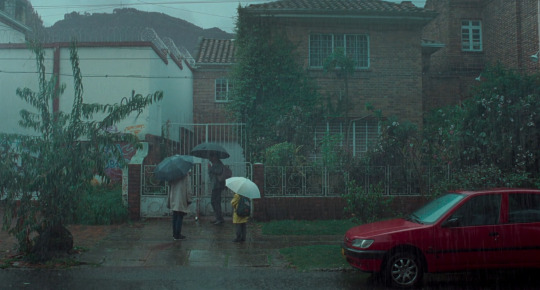

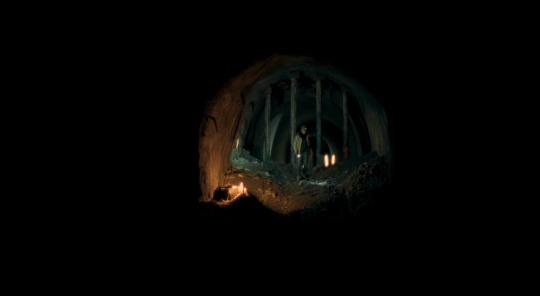
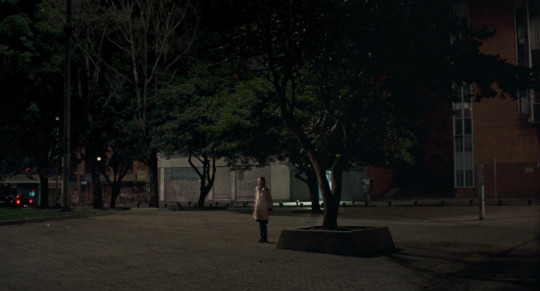
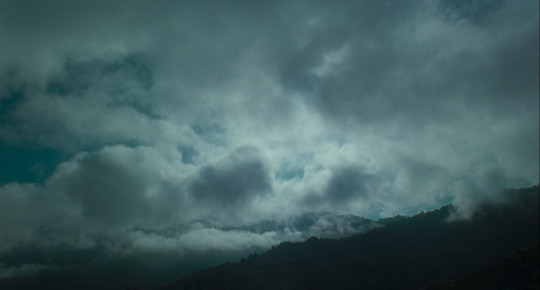
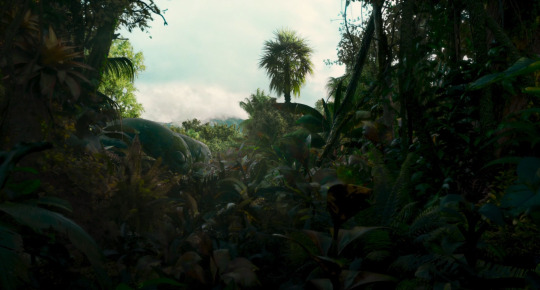

m əmor ᴉa, dir. Apichatpong Weerasethakul, 2021
#memoria#apichatpong weerasethakul#tilda swinton#fantasy film#magical realism#drama film#fantasy fiction#2021 films#2021 movies#2020s movies#new movies#art film#arthouse#art cinema#poetic cinema#thai film#thai cinema#memoria 2021#memoria apichatpong Weerasethakul#spanish film#spanish movie#nature#film tag#colombian cinema
91 notes
·
View notes
Text
Matthew Mercer | Thursday, 06.29.2023
Is Matthew Mercer (happy birthday) best known either as a hero or a villain with those characters down below?
Kurtis Stryker (Mortal Kombat Legends: Battle of the Realms) - Hero
Hit (Dragon Ball Super) - Anti-Hero
Ganondorf (The Legend of Zelda: Tears of the Kingdom) - Villain
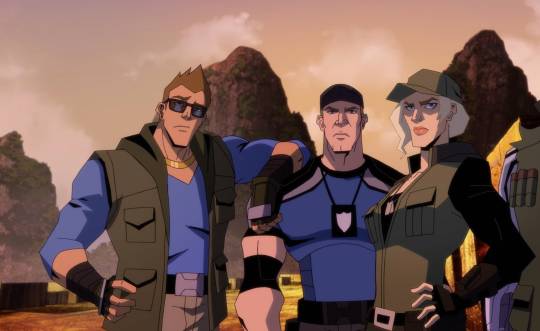
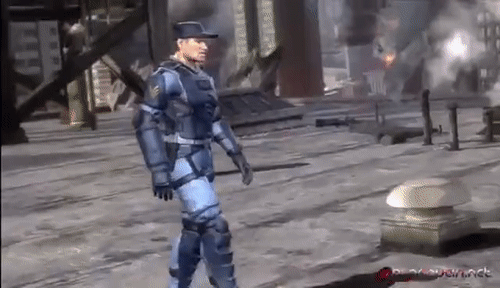


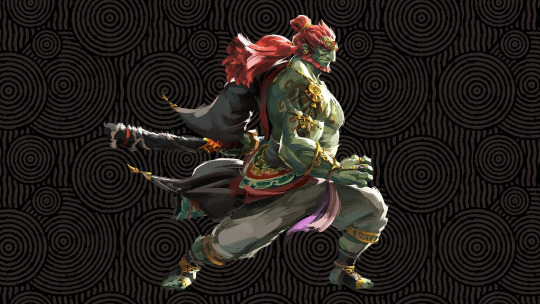
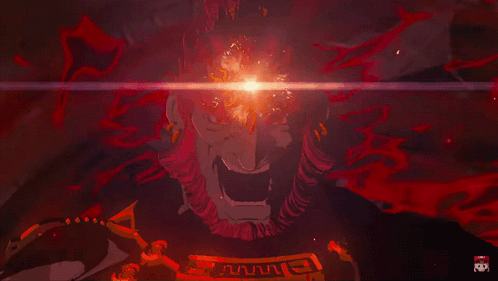
#2021 movies#2023 video games#anime#anti hero#dragon ball super#english dub#funimation#ganondorf#happy birthday#hit dbs#johnny cage#june 2023#june 29#kurtis stryker#mortal kombat#mortal kombat legends#nintendo#nintendo switch#r rated#sonya blade#tears of the kingdom#the legend of zelda#thursday throwback#toei animation#video game bosses#video games#video game villains
17 notes
·
View notes
Text
I love Mitchells vs. the Machines!
youtube
#mitchells vs the machines#fypシ#tumblr#popular#funny#meme#comic#videos#movies#movie#2021 movies#katie mitchell#mitchells#mitchell family#road trip#Youtube#movie2021#field trip
11 notes
·
View notes
Photo

It’s the 2-year anniversary of their movies!
#fanart#digital fanart#the mitchells vs the machines#arlo the alligator boy#katie mitchell#arlo beauregard#animated films#sony animation#netflix animation#adobe animate#marker tattoos#2021 movies#april movies#digital art#ryan crego#mike rianda#jeff rowe#abbi jacobson#michael j. woodard#go watch this movie#more to come#bishie sparkles#anime sparkles#hmvw2015#hannah van weelden#female artists on tumblr#artists on tumblr#crossover
15 notes
·
View notes
Text

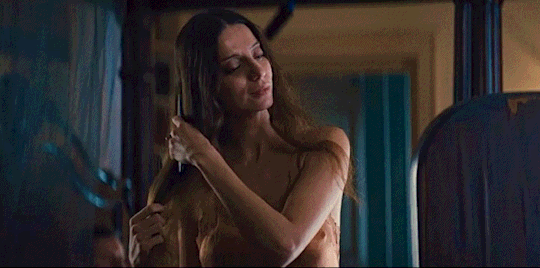




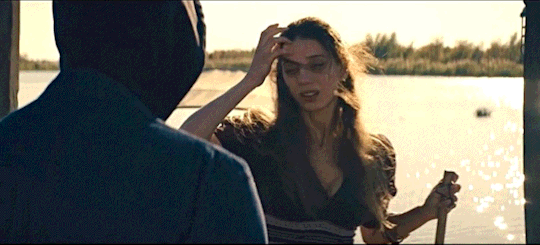

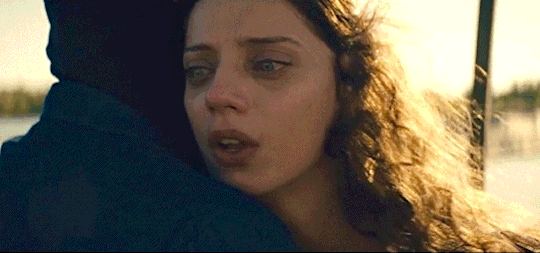
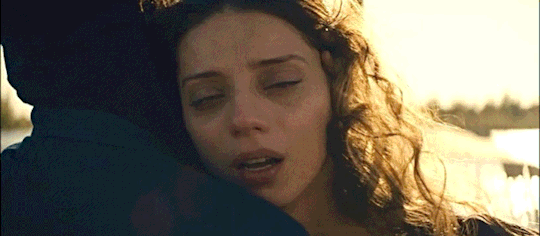
“In the reminiscence, I can feel his arms around me. Nothing compares.”
ANGELA SARAFYAN as ELSA CARINE in
REMINISCENCE (2021) dir. Lisa Joy
#angela sarafyan#clementine pennyfeather#westworld#lisa joy#angela sarafyan edit#clementine pennyfeather edit#my gifs#edit#film edit#films#movies#reminiscence#reminiscence movie#reminiscence 2021#hugh jackman#thandiwe newton#maeve millay#rebecca ferguson#asarafyanedit#2021 movies#elsa carine#hbo#hbo films#hbo edit
27 notes
·
View notes
Text
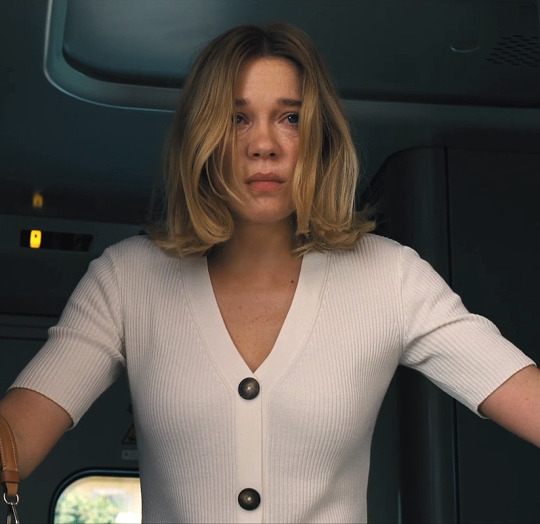
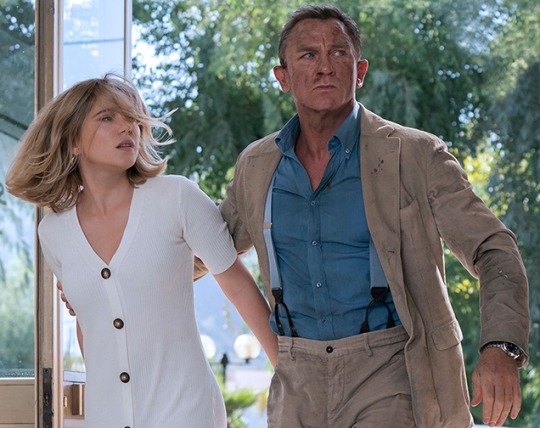

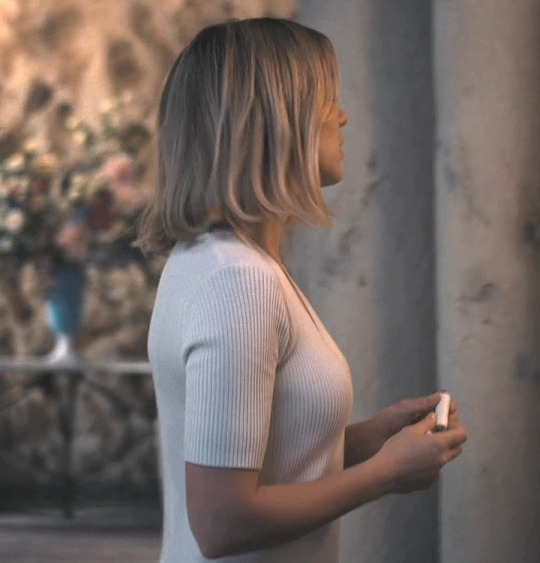
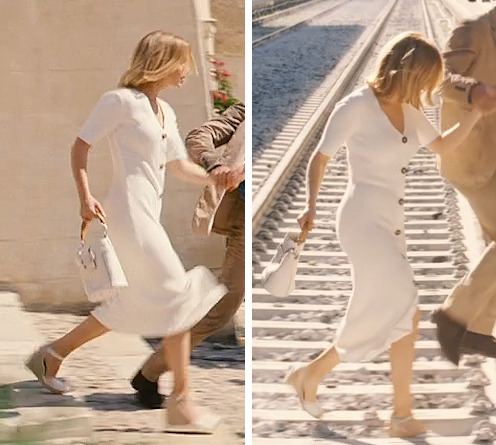



One Dress a Day Challenge
September: Bond Films
No Time to Die / Léa Seydoux as Madeleine Swann
Over the course of surveying several movies by now, I'm struck by how often "Bond girls" wear white, especially for day wear. Here's a simple but effective example from No Time to Die: a button-front dress by Spanish designer Massimo Dutti, made of soft ribbed material (knit?). As designed, the dress comes with a belt, but Madeleine doesn't wear it. With the white dress, Madeleine wears white Castañer Chiarita Espadrilles wedge sandals and carries a Tod's Double T Bucket Bag Mini purse. I didn't spot any jewelry.
White is a bit of a signature color for the character, as she also wore white in the previous film, Spectre. In this particular scene, it has the effect of making her look angelic and wronged when Bond accuses her of betraying him.
Although this film was released in 2021, it was filmed in 2019, so I'm filing it under 2010s fashion.
#no time to die#bond film costumes#léa seydoux#one dress a day challenge#one dress a week challenge#movie costumes#lea seydoux#madeleine swann#2021 movies#2021 films#massimo dutti#white dresses#white dress#bond girl#james bond films#daniel craig era#2010s style#2010s fashion
74 notes
·
View notes
Text
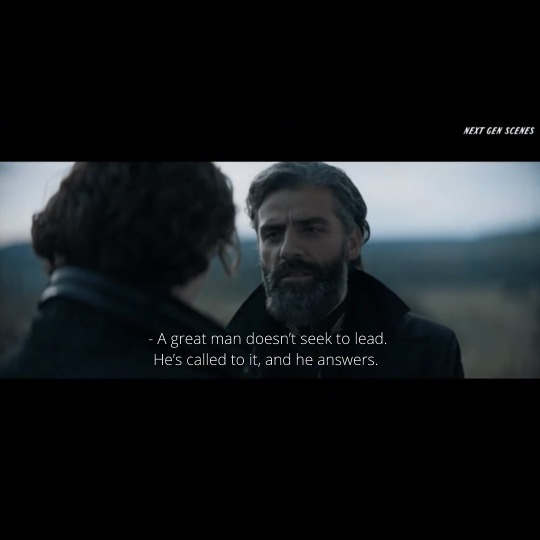
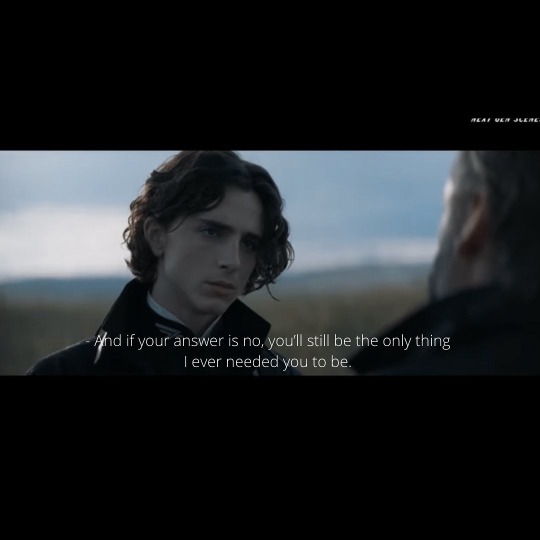

Dune (2021)
#cinephile#movies#dune#oscar isaac#timothee chalamet#denis villeneuve#2021#2021 movies#oscars#science fiction#sci fi#action#adventure#drama#fantasy#zendaya#epic#jason momoa#rebecca ferguson#cinephile community#frank herbert#adaptions
57 notes
·
View notes
Text
Godzilla vs. Kong (2021)
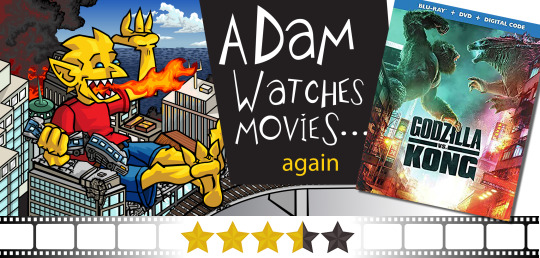
I might’ve been a little starved for blockbusters the first time I saw Godzilla vs. Kong and rated it. In my defense, it was during the pandemic and the other movies I was able to see during lockdown were mostly disappointments. Reviewing the film again, I recognize that the human’s plot is undercooked while everything with the monsters is spectacular. Well, at least the movie knows where its priorities stand and considering what its audience wants to see…
When Godzilla suddenly attacks Apex Cybernetics’ Pensacola facility, conspiracy theorist Bernie Hayes (Brian Tyree Henry) becomes convinced they somehow provoked the titan. Madison Russell (Millie Bobby Brown) - an avid fan of his podcast - shares his suspicions. They rope her friend Josh (Julian Dennison) into investigating and confirm their fears aren't entirely unfounded. After the attack, Apex insists mankind needs to develop a weapon against Godzilla and asks Monarch to give them access to Kong. They believe the titan ape can lead them inside the vast caverns below our world to a power source formidable enough to take down the king of the monsters.
Though Godzilla’s name appears first in the title, this film is about Kong much more than the radioactive dinosaur. It’s a good choice, as the ape is resourceful, an underdog in this fight and intelligent enough to communicate with Monarch via sign language. Godzilla might’ve protected the Earth/humanity in the previous movies, but was it really a heroic character, or was the nuclear reptile just killing its rivals? Kong, on the other hand, has actual human friends. Even though the Iwis we met during Kong: Skull Island have been wiped out (seems like a missed opportunity), Kong still has a link to them in the form of Jia (Kaylee Hottle), a deaf-mute Iwi survivor adopted by Dr. Ilene Andrews (Rebecca Hall). Nonetheless, his situation gives him a very relatable quest: he wants to know if there is a new family for him out there.
One-half of the human's story fares fairly well. With the help of Apex Cybernetics, Dr. Ilene Andrews, along with Jia and hollow-earth scientist Nathan Lind (Alexander Skarsgård) follow Kong into this hidden world beneath our feet that houses all sorts of monsters and an ancient rivalry between Kong and Godzilla (seems wacky, but it does lead to some fun developments). These characters are following Kong on his journey so when the 8th wonder of the world is put in danger, they are too. The other humans, however, feel like they only appear to deliver exposition or to give us some familiar faces. You could easily re-jig this story to remove them.
But of course, you didn't come to this film for the human element. Yes, kaiju films are better when the "tiny" protagonists are compelling, but if there's one aspect of this movie director Adam Wingard had to get right, it was the Godzilla and Kong stuff. I'm happy to say you won't be disappointed. The Titan battles are varied, clearly shot, tense and action-packed. You get three rounds between Kong and Godzilla, with a clear winner at the end that will leave fans of either camp satisfied. I know a lot of purists will say a Godzilla film isn't the same without rubber suits, but this picture does so much with modern special effects. Varied locations, varied angles, moves no human could do, etc. That last brawl in the neon-lit Hong Kong will make you say "wow!".
There have been a lot of Godzilla films since the character appeared. Some have been dramatic, others comedic or somewhere in the middle with an emphasis on dumb fun. None have featured action scenes as good as the ones in Godzilla vs. Kong. Even if you only have a passing interest in the characters, the highlights are strong, strong enough to make you forgive the parts that could've been strengthened. It's not even a guilty pleasure; it's gargantuan fun. (On Blu-ray, March 27, 2024)
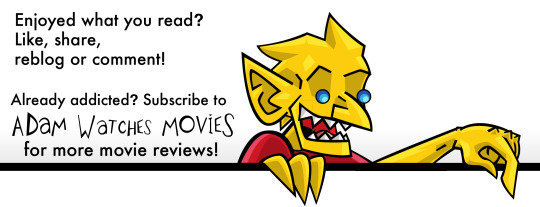
#Godzilla vs. Kong#King Kong#Godzilla#movies#films#movie reviews#film reviews#Adam Wingard#Eric Pearson#Max Borenstein#Terry Rossio#Michael DOugherty#Zach Shields#Alexander Skarsgard#Millie Bobby Brown#Rebecca Hall#Brian Tyree Henry#Shun Oguri#Eiza Gonzalez#Julian Dennison#Lance Reddick#Kyle Chandler#Demian Bichir#2021 movies#2021 films
2 notes
·
View notes
Text




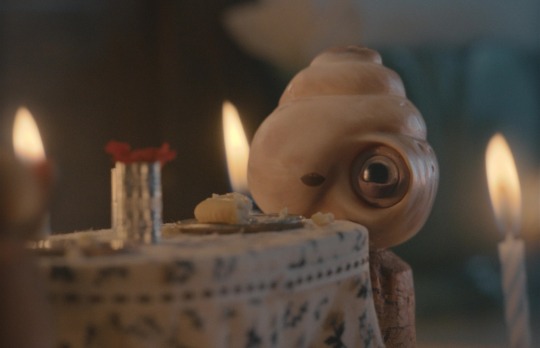
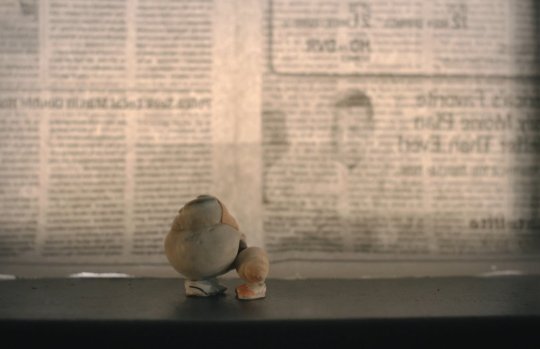
𖥔 ࣪ ˖ 54. marcel the shell with shoes on (2021) dir. dean fleischer camp
#2023#marcel the shell with shoes on#2021 movies#dean fleischer camp#jenny slate#cinematography#film stills#movies#cinema#cineshots#screencaps
17 notes
·
View notes
Text
ON THE COUNT OF THREE (2021)
★ ★ ★ ★ ★ ★ ★ ☆ ☆ ☆ (7/10)

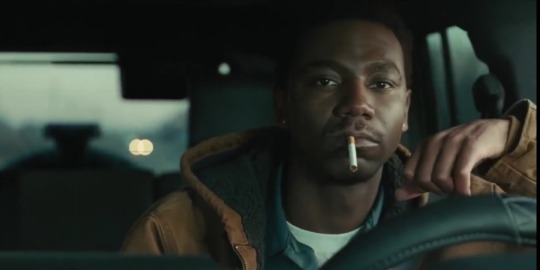


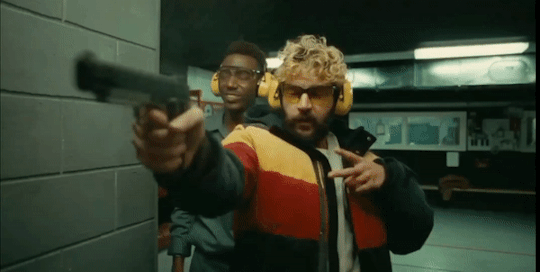

#my gifs#film gifs#movie gifs#movie#film#on the count of three#on the count of three 2021#2021 films#2021 movies#tumorousfilm 2023
5 notes
·
View notes
Text

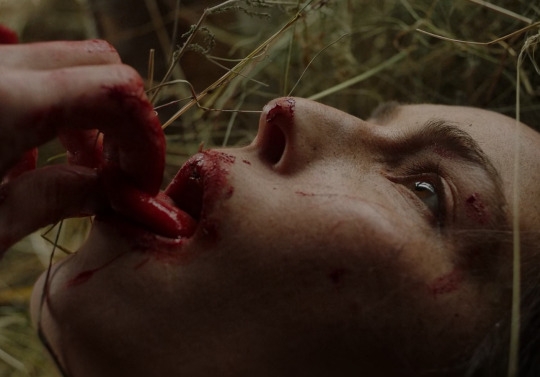



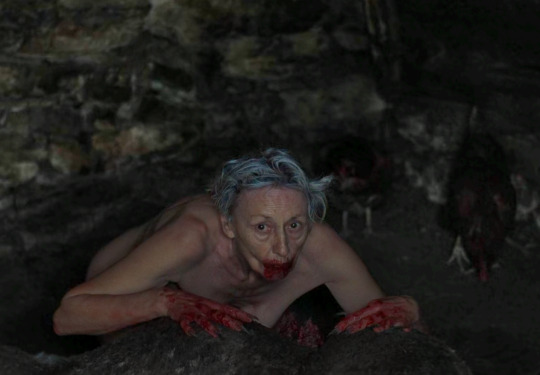

You Won't Be Alone, dir. Goran Stolevski, 2021
#you won't be alone#you Won't be alone 2021#noomi rapace#goran stolevski#horror films#horror#horror cinema#horror movies#2021 movies#2021 films#movies#film#cinema#2020s movies#2020s cinema#2020s films#folk horror#witch movies#witches#film tag#folkscenery#occult#occultism#folk witch#gore#tw gore#horror art#tw blood#gore makeup
64 notes
·
View notes